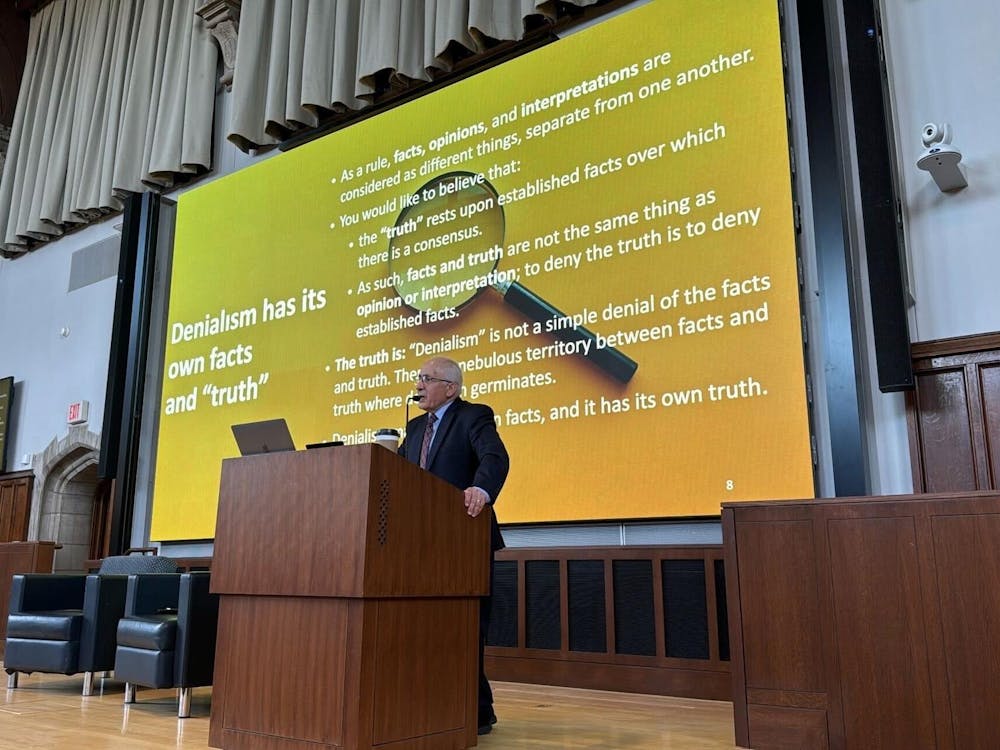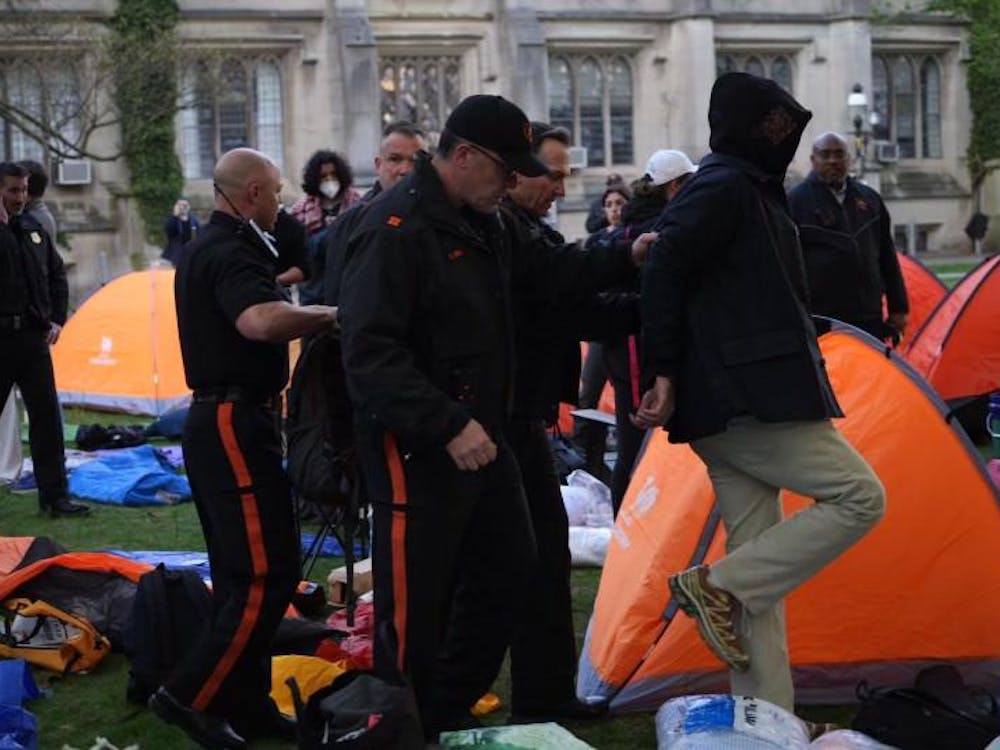None of the professors interviewed for this article said they could recall more than a handful of cases in the last decade in which students did not graduate on time, finished thesis in hand.
Computer science professor Brian Kernighan said the few cases where students did not graduate involved students’ failure to submit a thesis rather than any unsatisfactory work. The computer science department, which offers both A.B. and B.S.E. degrees, only mandates theses for A.B. students.
Kernighan is also a columnist for The Daily Princetonian.
Because students so rarely fail to turn in their theses, Kernighan explained, he was unsure how to deal with the situation when it arose. After contacting the Office of the Dean of the College, Kernighan learned that each department sets its own policies about how to deal with nonexistent theses. The department notifies the dean of the college when it is satisfied with the student’s work, and the student will likely be allowed to graduate.
Other departmental representatives noted that they may consult residential college academic deans or the Office of the Registrar in such situations.
The psychology department does not have written guidelines for addressing cases where a student’s thesis is not up to par, departmental representative Dan Osherson said in an e-mail. If such a case arose, “I think that we would approach the [student’s residential college academic] dean,” he explained.
But Kernighan stressed that failure is uncommon and that by constantly monitoring their students’ progress, departments can avoid resorting to such extreme measures.
History departmental representative Alec Dun said that over the last two years, only one student’s thesis was deemed not passable. He added that the department distributes a thesis rubric and schedule that clearly informs students about the requirements for graduation.
No student in the operations research and financial engineering department has failed a thesis during the department’s 10-year existence, though “a couple” did so when ORFE belonged to what is now the civil engineering department, departmental representative Alain Kornhauser said.
Anthropology professor Alan Mann said that in his seven years as departmental representative, no student has failed a thesis, though a few have handed theirs in late enough to postpone their graduation.
For students who hand in drafts that are too short or lack thorough research, Dun explained, departmental checks like adviser meetings help ensure that students complete the work necessary to secure a passing grade.
“Any of those things should be immediately remediable with the help of the adviser,” he said, adding that because of departmental advising and the student’s own effort, “I can’t really imagine a first draft that gets handed in in March that wouldn’t be passable.”

If a history thesis receives a failing grade from both the student’s adviser and an anonymous second reader, the grade will be reported to the Office of the Registrar, Dun said.
Like Dun, Kornhauser attributed the rarity of failed theses to the intense monitoring provided by advisers. “There’s so much supervision that in the end, [students] pull the all-nighters and do what’s necessary to get the darn thing in,” he said.
Kornhauser added that the ORFE department’s strict late policies also help to ensure that students submit their theses on time. The thesis counts as two courses, and for each day a student’s thesis is late, the department deducts one-third of its grade. Points are lost at the same rate when students fail to hand in their four interim reports, which log their thesis progress, on time.
Professors also noted that even when students’ work is not particularly good, departments do not enjoy failing their students.
“Hypothetically, we give grades for thesis work,” Kernighan said. “There is a full range of grades, which includes F … I don’t think we have done that. They would possibly just get a bad grade, but not a failing grade.”
Mann downplayed the notion that students could fail their theses. “For most students, the thesis turns out to be somewhat easier than their wildest fears imagined it.”








